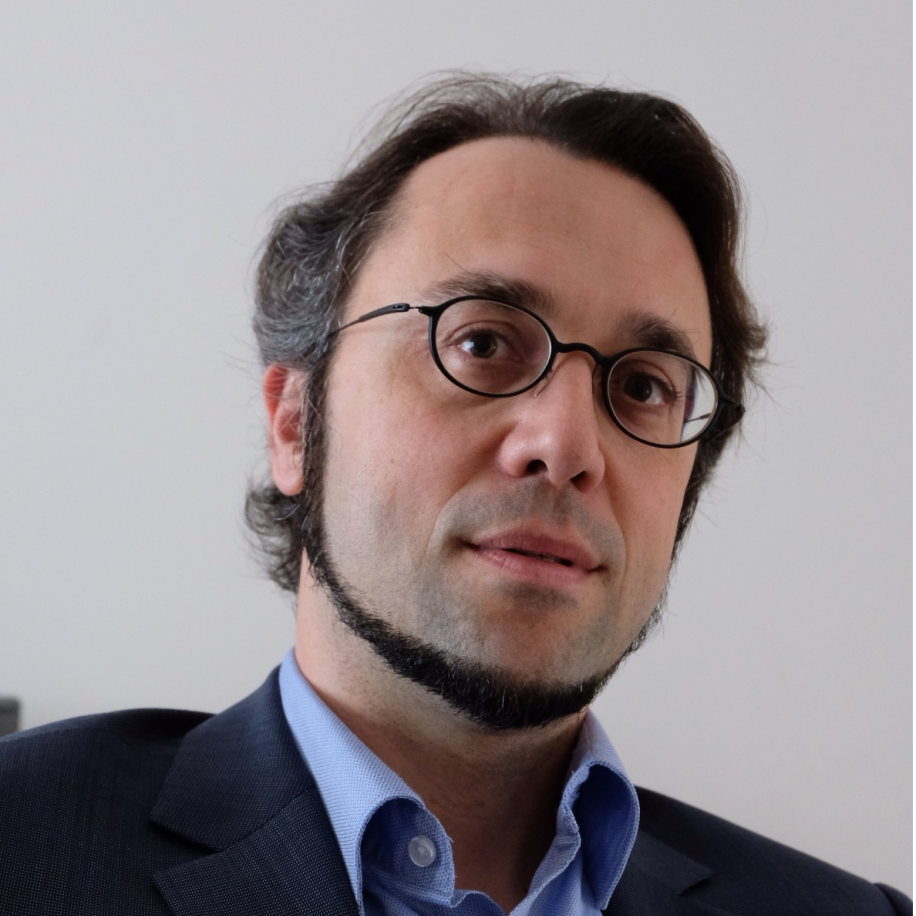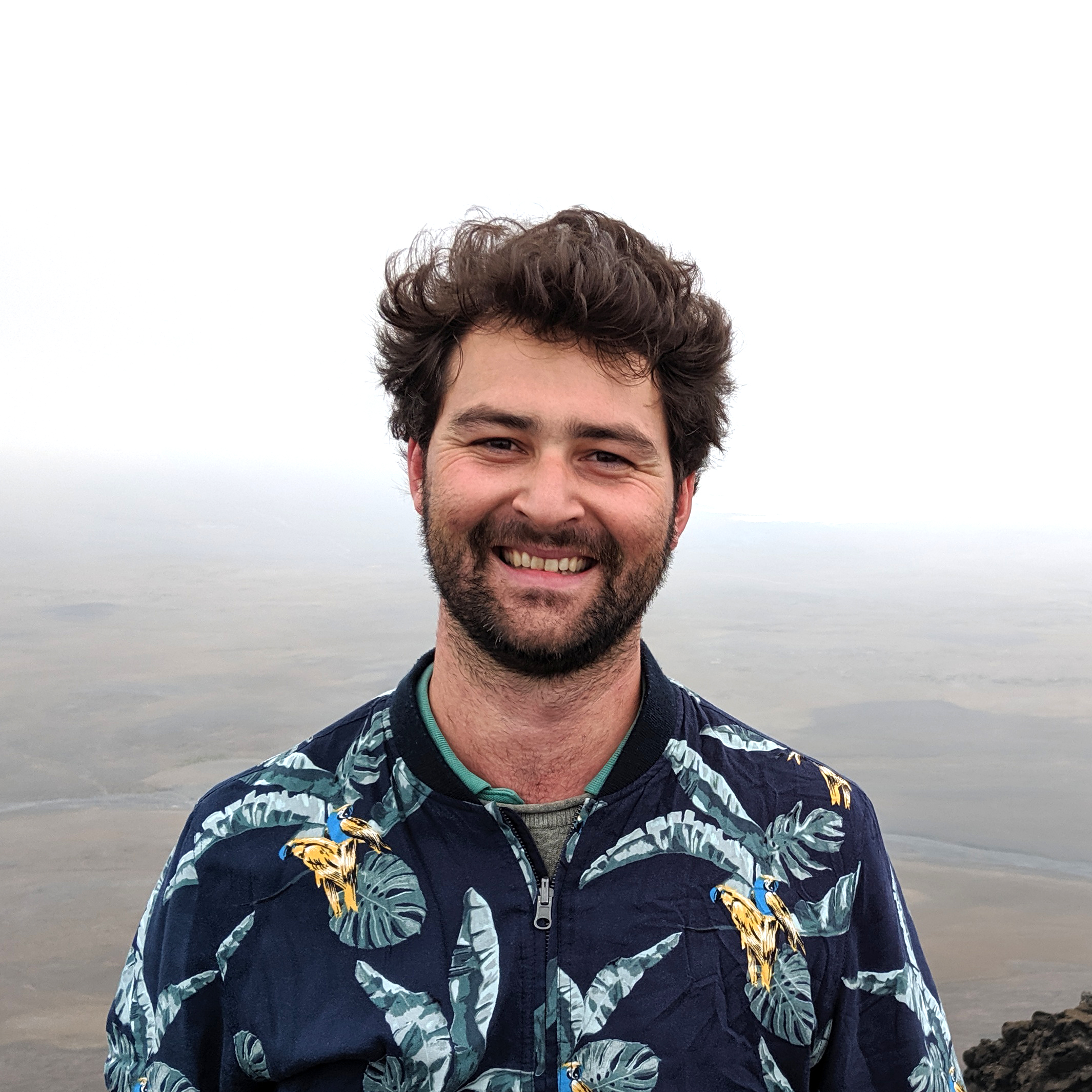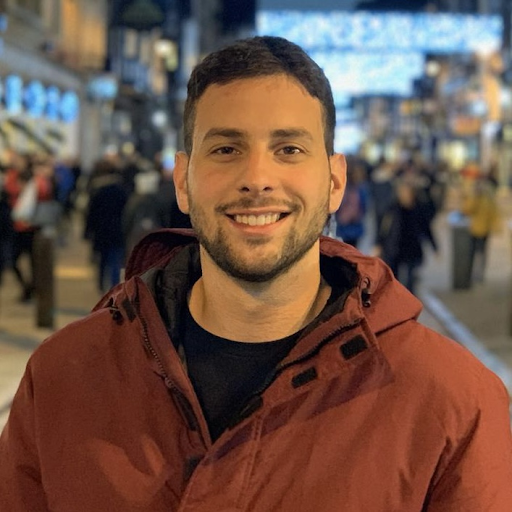
Lab Director

Simone Dalla Bella
Simone Dalla Bella is full Professor in the Department of Psychology at the University of Montreal (Canada), and from 2018 Co-director of the International Laboratory for Brain, Music and Sound Research (BRAMS, Montreal). Born and raised in Italy, he studied cognitive psychology at the University of Padua (Italy), piano performance (Conservatory of music of Mantua, Italy), and carried out his doctoral studies in cognitive neuropsychology at the University of Montreal (Canada) under the supervision of Dr. Isabelle Peretz, followed by postdoctoral work with Dr. Caroline Palmer. Dr. Dalla Bella is co-holder of the Casavant Chair in neuropsychology and music cognition, and from 2022 of a Canada Research Chair (tier-1) in Music Auditory-Motor Skill Learning and New Technologies.
Dr. Dalla Bella’s research focus over the years has been on the cognitive and neuronal mechanisms underpinning music perception and performance (singing, moving to the musical beat). He contributed to the study of individual differences in music cognition, with a particular interest in musical deficits (e.g., tone deafness, beat deafness, and disorders of auditory-motor synchronization), in healthy and disordered populations. His laboratory has developed significant expertise in evaluating music abilities (pitch / rhythm perception and production) in various groups spanning young and older healthy adults, children with neurodevelopmental disorders (e.g., ADHD, dyslexia, developmental stuttering), and adults with neurodegenerative diseases (e.g., Parkinson disease), and training tools such as serious games for improving auditory-motor synchronization skills. Dr. Dalla Bella entertains an extensive network of collaborations with top universities in Europe (e.g., France, Germany, United Kingdom, The Netherlands), North-America, and Australia on projects revolving around music/rhythm abilities and individual differences. In the last decade these collaborations have extended to the private sector, supported by grants aimed at technological transfer or music-based technology, fostering a translation of the results of fundamental research to technological applications for the public. His current research is centered around the evaluation and profiling of rhythmic abilities in healthy individuals and patient populations (Parkinson’s disease, ADHD), and the use of rhythmic stimulation and training to improve motor skills (e.g., gait and speech) and cognition.
Dr. Dalla Bella’s research work is highly multidisciplinary and intersectorial, by harnessing methods and theories from a wide array of disciplines, including cognitive sciences, neuroscience, music, movement sciences, engineering, and health. He uses behavioral methods, motion capture, EEG, and exploits mobile technologies (in collaboration with the private sector) for testing and training purposes. Together with his students and collaborators, he has published > 100 scientific papers (> 8000 citations, h-index of 47, Google Scholar), some of them in top-tier journals (Nature, Cognition, Scientific Reports, JEP : General, JEP : HPP). Some of these research findings have attracted particular media attention internationally (e.g., Nature, Nature News, PNAS Front Matter, Scientific American, Acoustical Society of America Press, Live Science, Science News, BBC, Le Monde).
Examples of recent research projects include the study of different phenotypes of beat deafness and poor synchronization in the general populations (Sowiński & Dalla Bella, 2013; Bégel et al., 2017); building a battery of rhythm perception and production tasks (BAASTA) and its adaptation on a mobile device (Dalla Bella et al., 2017; Puyjarinet et al., 2017; Zagala et al., 2021); rhythmic abilities and cognitive functioning in ADHD and developmental dyslexia (Puyjarinet et al., 2017; Bégel et al., 2022); the effect or rhythmic auditory cueing in patients with Parkinson’s disease, and their interaction with individual differences in beat perception and synchronization (Benoit et al., 2014; Dalla Bella et al., 2017, 2018); developing a serious game on tablet for training rhythmic abilities (Bégel et al., 2018) and testing its beneficial effects on motor behavior in patients with Parkinson’s disease (Puyjarinet et al., 2022; Dalla Bella, 2022). Dr. Dalla Bella’s research is primarily funded by CFI, NSERC, and the Canada Research Chair program.
Research Associates and Post-Doctoral Researchers

Mehrdad Bahadori
Position: Postdoc, Psychology
Mehrdad works on a joint project between BRAMS and the REVAI company investigating cognitive modulations and their effects on auditory-motor synchronization. His research interests include the relationships between action and perception, with a particular focus on auditory perception.

Nick Foster
Position: Research associate, Lab manager
Nick is lab manager in the Dalla Bella lab. As a research associate he is involved in the supervision of students and research projects in the lab, and coordination of external research collaborations. These projects include ongoing research using the BAASTA battery, the Rhythm Workers serious game, online testing of rhythmic and cognitive abilities, and other dimensions of the lab’s research mission. Nick’s previous work includes research on auditory perception and music-based interventions in developmental disorders as a postdoctoral fellow with Dr. Krista Hyde, and doctoral research on brain functional and structural outcomes of musical training with Dr. Robert Zatorre.
PhD Students

Antoine Guinamard
Program: PhD, Psychology, cotutelle in collaboration with University of Lille, France
Co-Supervisors: Dr. Séverine Samson and Dr. Delphine Dellacherie
Antoine is interested in how development and evolution shape musical behavior and abilities. His project studies the development of rhythmic explicit and implicit timing skills in children. Previously, Antoine obtained a Master’s degree in Clinical Neuropsychology at the University of Lille. He also enjoys hiking, biking and other nature sports, as well as playing various musical instruments.

Kevin Jamey
Program: PhD, Psychology
My doctoral project examines the neural correlates of a tablet-based rhythmic training game (RhythmWorkers) on executive functioning and speech in children on the autism spectrum. My research interests are in new technologies for music-based cognitive training in children with neurodevelopmental disorders. I previously completed my MSc on music perception abilities in children on the autism spectrum at the University of Montreal under the supervision of Dr. Krista L. Hyde, for which I received a Certificate of Academic Excellence from the Canadian Psychological Association. In my free time, I am a singer-songwriter, music producer/live act, and I love to create powerful musical experiences where lyrics are inflected for rhythm and melody.

Hugo LaFlamme
Program: PhD, Psychology
Co-supervisor: Dr. Simon Rigoulot
Hugo is interested in sensorimotor synchronization in neurodevelopmental populations. His project focuses on the use of serious gaming to improve cognitive abilities in attention-deficit/hyperactivity disorder (ADHD) during childhood.

Marie-Andrée Richard
PhD, Psychology
Co-supervisor: Dr. Nathalie Gosselin
Stemming from her interest in the neuropsychology of music, Marie-Andrée’s research focuses on the cognitive and neural mechanisms underlying music reward and auditory-motor synchronization in a running task, while considering individual differences in rhythmic abilities and music hedonia. Her project will determine to what extent reward and auditory-motor synchronization influence each other. Outside of academia, Marie-Andrée plays violin in a string orchestra and is involved in graduate student committees.

Agnès Zagala
Program: PhD, Psychology
Co-supervisor: Dr. Fabien Dal Maso
My project focuses on individual differences in an audio-motor synchronization task while walking. The goal of this study is to examine the relations between gait characteristics, motor optimization, rhythmic abilities, cognitive functioning, and individual response to rhythmic stimulation during walking. I previously completed a Master’s degree in Cognitive Neurosciences, and a Bachelor’s degree in Musicology, Mechanics, and Biology.

Clara Ziane
Program: PhD, Exercise sciences
Clara is investigating the effects of rhythm on older adults’ brain activity and its consequences on locomotion. She previously completed degrees in Music Performance (BFA) and Kinesiology (BA, MSc), which nurtured her growing passion for music in health. When she is not looking at data, Clara enjoys playing the guitar, sports, and the outdoors!
Masters Students

Francis Dufresnes
Program: MSc, Psychology
Co-Supervisor: Dr. Louis Bherer
Francis’ project focuses on the effect of an auditory-motor training on dual-task performance in the elderly population. Prior to his current studies, Francis obtained a BA in journalism. His goal is to become a clinical psychologist and a researcher specialized in theory-guided musical intervention for the elderly population. In addition to being a researcher, Francis is a late self-taught piano player.

Lucille Fourneraut
Program: MSc, Psychology
Lucille’s interest in pathopsychology led her to conduct research on Parkinson’s Disease. Her project focuses on people’s rhythmic abilities in both Parkinson’s Disease and in relation to altered states of consciousness. Outside of the lab, Lucille spends time being an amateur photographer.

Oren Gurevitch
Program: MSc, Physiology (McGill University)
Co-Supervisor: Dr. Suresh Krishna
Oren’s research uses music perception and performance as key methods to investigate the physiological and phenomenological aspects of flow-states. He holds a BSc in Neuroscience, and studied sensory processing in rats as a research assistant for Professor Adam Zaidel at Bar-Ilan University, as well as multiple sclerosis as a lab assistant with Professor Idit Shachar at the Weizmann Institute of Science.

Marilyne Lemire
Program: MSc, Psychology
Co-supervisor: Dr. Simone Falk
Marilyne’s research project focuses on the effect of rhythmic training on verbal and nonverbal skills in preadolescents who stutter. Her goal is to complete a PhD in Clinical Neuropsychology. Marilyne has also been a street dancer for 15 years.

Ming Ruo Zhang
Program: MSc, Psychology
Ming is interested in the neurocognition of musical rhythm processing. Her project focuses on the training potential of beat deafness, a form of rhythm-specific congenital amusia. In her spare time, she also enjoys watching anime and cosplaying.
Research Assistants / Trainees / Visitors

Violette Ayral
Program: MSc, Neuropsychology (Maastricht University)
Violette is a visiting intern during summer 2023 on a research project that uses rhythmic auditory cues to optimize human gait. She is currently completing a Neuropsychology Master at Maastricht University, and her research interests include neuropsychology and neurodegenerative diseases.

Ilay Celik
Program: BSc, Cognitive Neuroscience
I work as a research assistant with Ph.D. student Miriam Oschkinat on a research project focusing on speech and vocal production. I am interested in the production of language, cognition and perception, particularly in developmental and cognitive disorders.

Juliette Fortier
Program: BSc, Psychology
Juliette is a research assistant working with graduate student Marie-Andrée Richard on a study of audio-motor synchronization and reward. Her research interests include music, emotions and social psychology, and she aims to continue her training in the Psychology Research and Intervention graduate program. Having learned violin for 10 years, and as a singer in her spare time, Juliette defines herself as a real music enthusiast, and as a nature and travel lover.

Mia-Lin Gromko
Program: BMus (Jazz Performance), Minor in Psychology at McGill University
Co-Supervisor: Dr. Floris van Vugt
Mia-Lin is currently assisting Dr. Simone Dalla Bella and Dr. Floris van Vugt with a research project involving motor synchronization, breathing and affiliation. Passionate about music and psychology, she would like to pursue her studies by researching the positive effects of music on the brain and on well-being. In her free time, Mia-Lin enjoys playing saxophone and piano, travelling and reading!

Florence Landry-Lehoux
Program: BSc, Cognitive Neuroscience, Neuropsychology
Co-Supervisor: Dr. Simon Rigoulot
I am working as a research assistant on a project about gait and rhythm under the supervision of Dr. Simone Dalla Bella. I am also completing my honors project with Dr. Simon Rigoulot on the impact of regional accent on the recognition of emotions.

Véronique Renaud
Program: BSc, Cognitive Neuroscience
Véronique is a research assistant in a project investigating sound localization for complex sounds. She is completing a BSc in Cognitive Neuroscience, and her goal is to continue studying at the graduate level in psychology research. She has multiple passions but has a particular interest, obviously, in the neurocognition of music.
Maxime Roberge
Maxime is a research assistant directed by Dr. Simone Dalla Bella and Dr. Nathalie Gosselin. He has a bachelor’s degree in Cognitive Neuroscience and is currently pursuing a certificate in addiction. Maxime’s research interests focus on drugs and addiction in general, and questioning their link to dopaminergic influence on reward prediction error related with pain. He is also interested in neurodevelopmental disorders such as ADHD and ASD, neurodegenerative diseases, and rhythmically modulated brain waves.

Samaneh Roghani Zanjani
Program: MSc, Psychology
Samaneh is working on a collaborative project between Dr. Dalla Bella and Dr. Simon Rigoulot. Her passion lies in exploring the connections between music, the reward system, and health. Samaneh’s research focuses on using a combination of behavioral, physiological, and cerebral (EEG) measures to examine the impact of music and neurostimulation (TMS) on mood in the healthy population. She holds a BSc in Psychology from Allameh Tabataba’i University.

Renaud Ross-deBlois
Program: BSc, Cognitive Neuroscience
Influenced by his position as a piano teacher at École de Musique Vincent d’Indy, Renaud is interested in music cognition and how music cognition can be applied to music pedagogy. In his own research, he has focused on characterizing spatial localization of spoken and sung vocalization and also on understanding the exceptional brain of prodigies. Renaud received a BMus in Piano Performance and a BSc with Honors in Cognitive Neuroscience from University of Montreal.

Danielle Wood
Program: MSc, Cognitive Science – Embodied Cognition (University of Potsdam, Germany)
I am a research assistant for both Dr. Simone Dalla Bella and Dr. Simone Falk in a project investigating predictive timing in speech production and perception. Previously, I completed a bachelor’s degree in music performance with a minor in mathematics. In my free time, I enjoy running, climbing, and playing French horn.

Lindsey Zilber
Program: BSc, Cognitive Neuroscience
Co-supervisor: Dr. Floris van Vugt
Lindsey is interested in research in social neurosciences and musical cognition. She is working as a research assistant on a study about the effects of motor synchronization and biological rhythms on social links.




